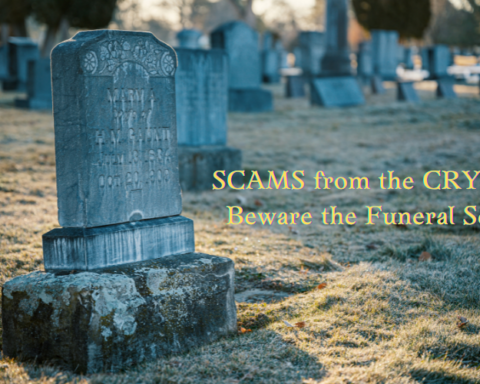Original Post | Prevent Care Giver Fraud – AARP
Working with a reputable, bonded agency is part of the path to peace of mind in bringing a caregiver into your loved one’s home. Experts recommend taking these additional steps to safeguard a care recipient from financial exploitation.
1. Secure valuables, cash and cards
Create an inventory of all the valuables in the house, including photo or video records of items and a list of where they are stored. Keep smaller items like jewelry locked up at all times.
Limit an in-home aide’s access to their charge’s cash, checkbooks and credit cards. If their job includes buying groceries or running errands for the older person, consider giving them prepaid debit cards for the purpose, so they can spend only up to the loaded amount.
2. Be present
Check in regularly with both the caregiver and the care recipient to monitor the quality of service and see how the relationship is developing. “Make unannounced visits if you are close by,” Greenwood says. If you live far away, ask a trusted friend of your loved one to pop in at least once or twice a month.
3. Use technology
If your loved one will allow it, install a doorbell video camera on the front door “so you know exactly when the caregiver comes and goes,” Greenwood says.
Video cameras in common areas like the kitchen or living room can provide additional monitoring and theft protection, but make sure to follow your state’s laws on the use of security cameras to supervise people working in your home.
4. Monitor transactions
Contact your loved one’s bank or credit union to arrange “view only” access to their accounts, or sign them up for a monitoring service such as EverSafe. These options allow you “to view but not transact on the account, much like an accountant on a business account,” Gunther says.
Greenwood advises families to write a letter to a parent’s or older relative’s bank after hiring a new caregiver, asking it to “keep a special eye” on the loved one’s accounts and notify Adult Protective Services if they spot unusual activity. Don’t do this by phone or email, he says: “Letters get results — far better than an email or a phone call.”
5. Watch for warning signs
Unusual financial activity can be a tipoff that an older loved one is being exploited by a caregiver or other person who has gained access to their money. Here are some red flags to look out for, according to the American Bankers Association.
- Large, frequent or unexplained bank withdrawals or fund transfers
- Changing from a basic bank account to one with more complicated services
- A new person conducting financial transactions on a loved one’s behalf without proper documentation (such as a financial power of attorney)
- Checks that are written as “loans” or “gifts” or have suspicious-looking signatures
- Sudden overdrafts or unpaid bills
- Changes to wills, trusts or powers of attorney
If you suspect caregiver fraud or theft, contact the police and your local Adult Protective Services agency. The U.S. Department of Justice’s Elder Justice Initiative (EJI) offers an elder fraud hotline (833-372-8311) and an online map of state agencies that assist in cases of elder abuse.
Advise the older person’s attorney of any suspected financial abuse, especially if a caregiver is exerting pressure to revise estate planning documents.
Sandra Guy has won awards for her health and technology reporting for the Chicago Sun-Times and the Society of Women Engineers’ SWE Magazine. She teaches journalism at DePaul University and is a former president of the Chicago chapter of the Association for Women Journalists.











